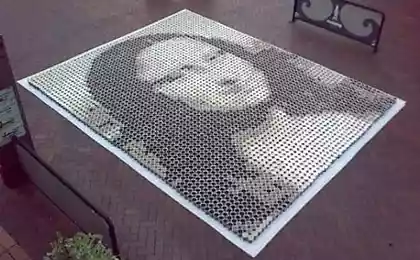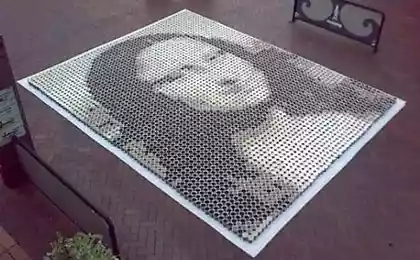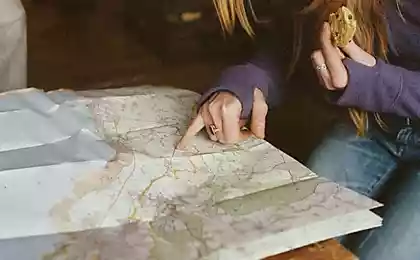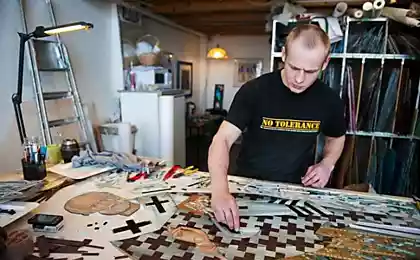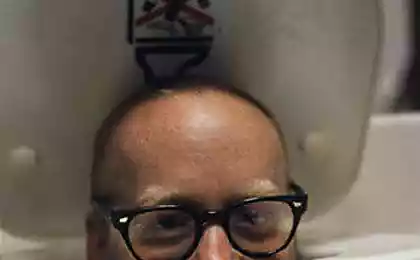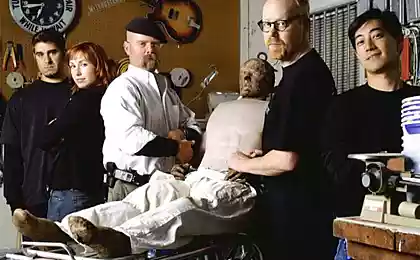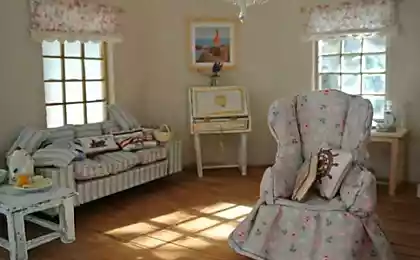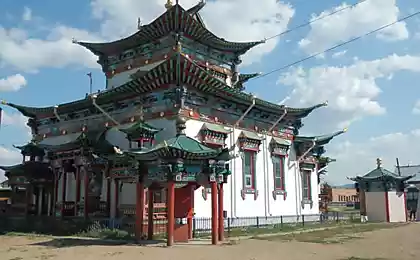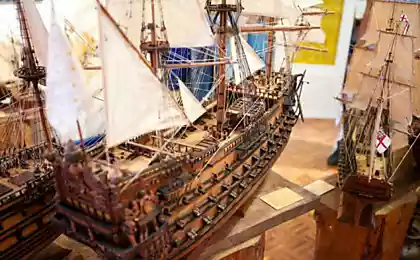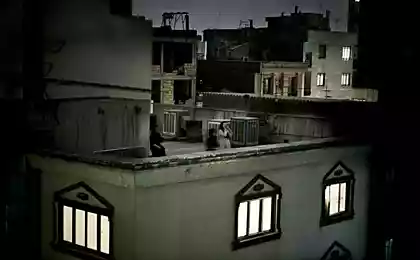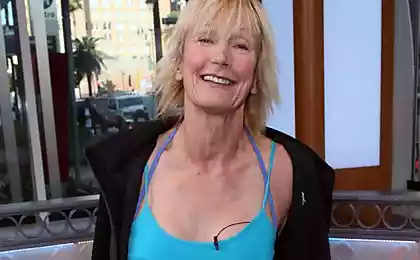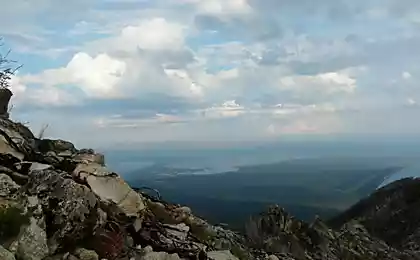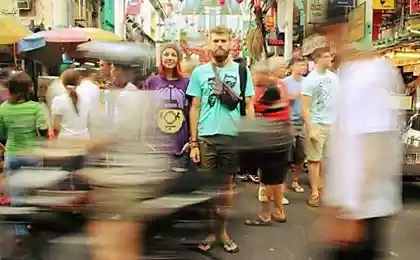1230
Photo of the mosaic workshop
Today, the author tells us about the mosaic workshop in the monastery of St. Gerasimos. In the post, you will learn the manufacturing process and will be able to look at the beauty of the finished mosaics in.
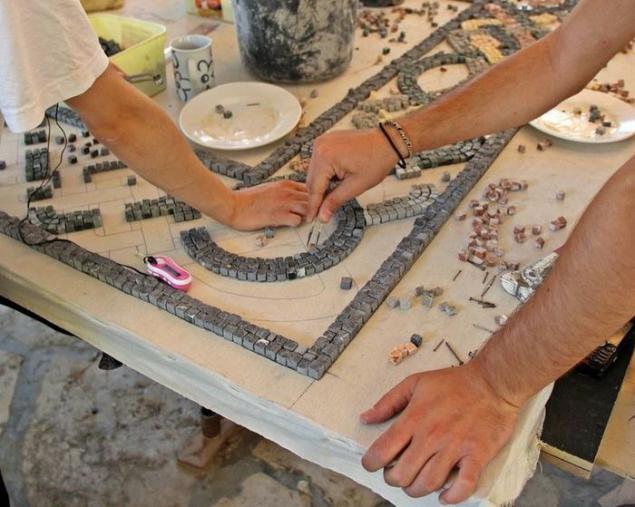
Outside, the desert landscapes
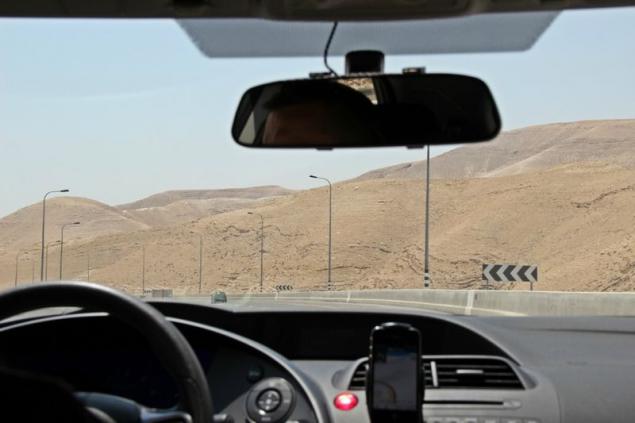
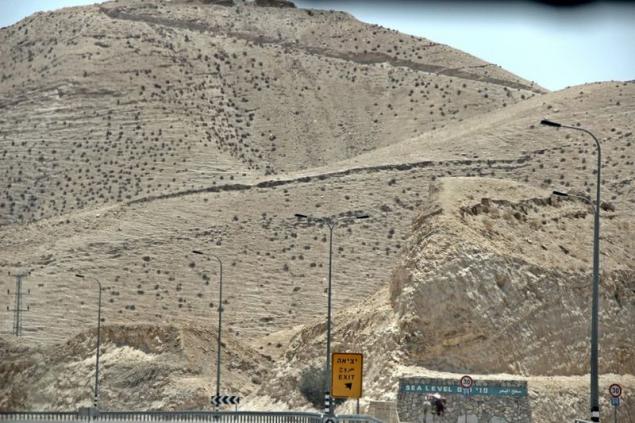
Sometimes even the moon
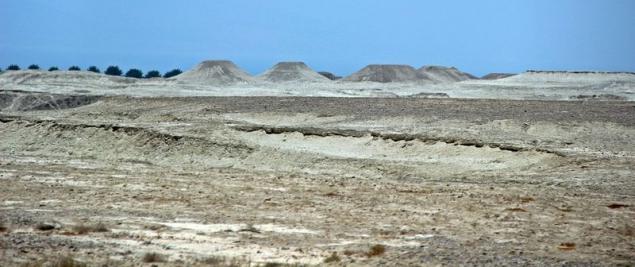
And here is the monastery. Inna said that we are lucky enough to catch the dome of the monastery at the time of the restoration of gray gold, but these things assertion was greeted rather skeptical
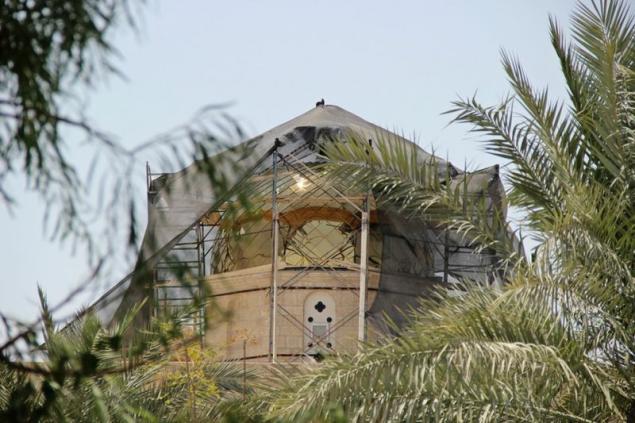
Dates are almost ripe
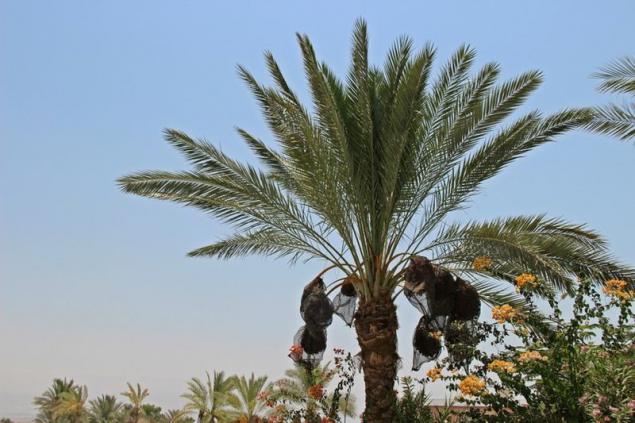
The monastery, named after St. Gerasimos of Jordan (arab. Deir Hagley (Deir Hadzhla), "House partridges"), was built in about the 19th century on the ruins of the buildings of the Crusaders, who, apparently, were the place of his monastery, built in the year 455 and is considered one of the oldest on the territory of the Holy Land. This wall - the last thing that remains from the times of the Crusaders.
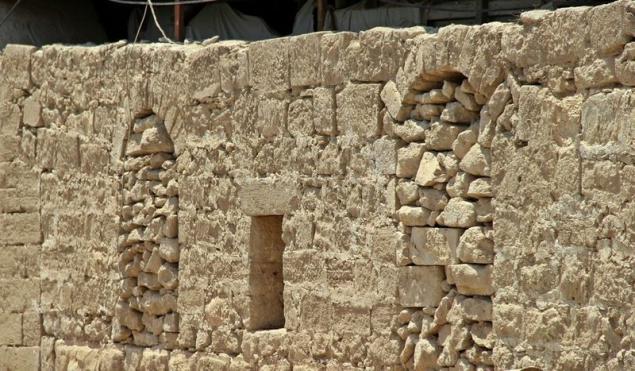
And here is the workshop. We went into it through the back door
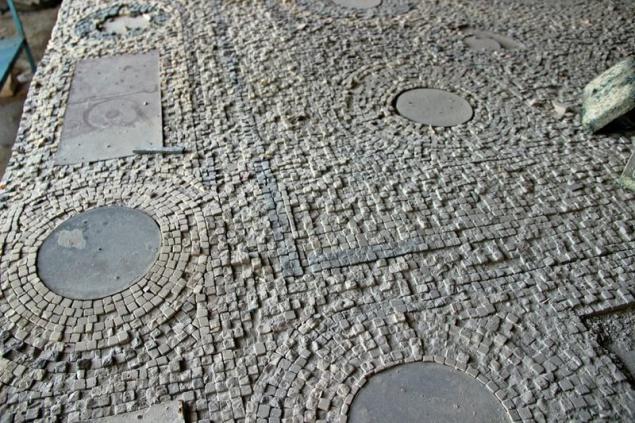
Billets
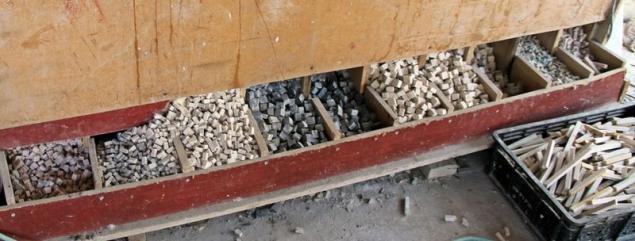
Previously worked here the monks who came from Greece, and now laid mosaic Arabs from the nearby town of Jericho
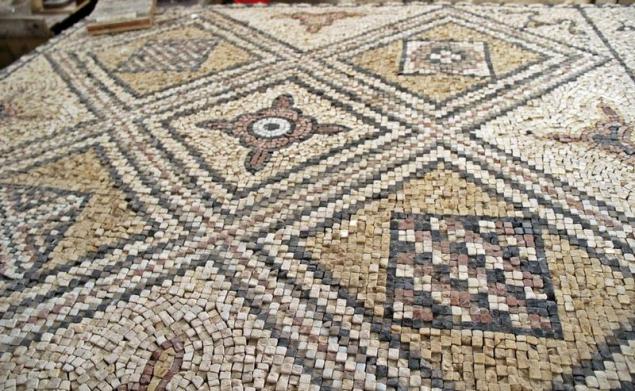
They did not object to our presence and shooting, but were watching our actions
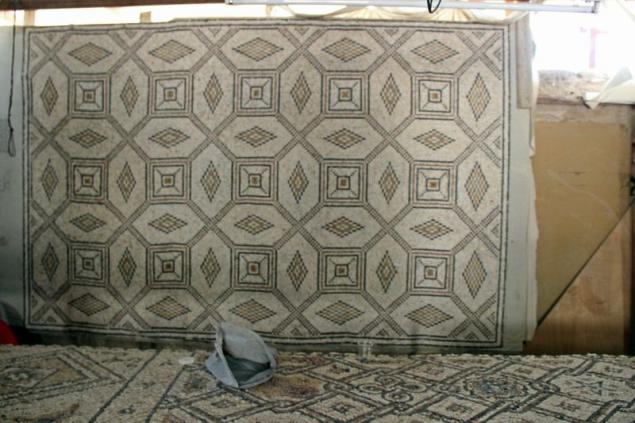
The monastery, unlike many others, is almost self-sufficient lives by selling puzzle to anyone who orders any subjects. Well, maybe naked nymphs, and they will not do, and anything for your money
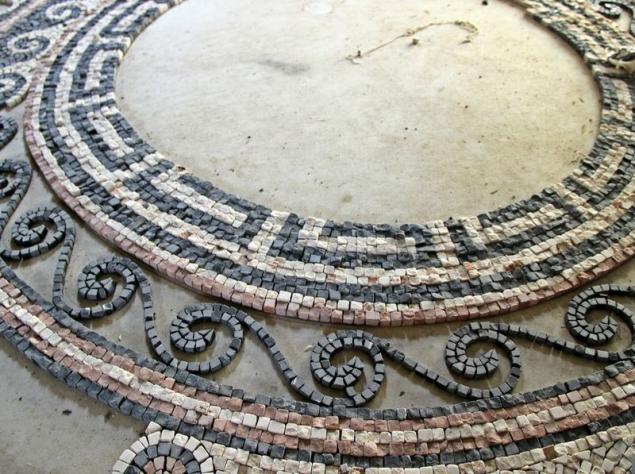
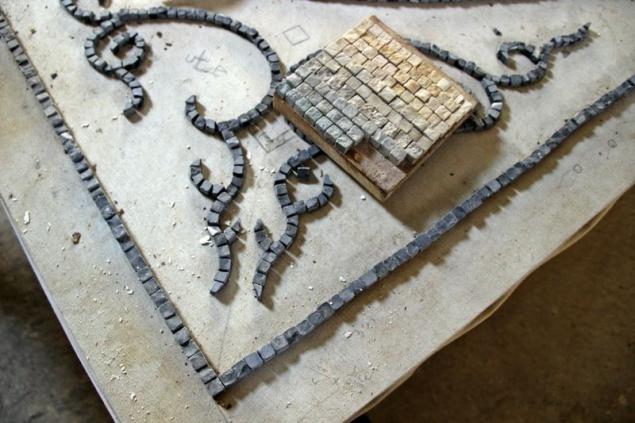
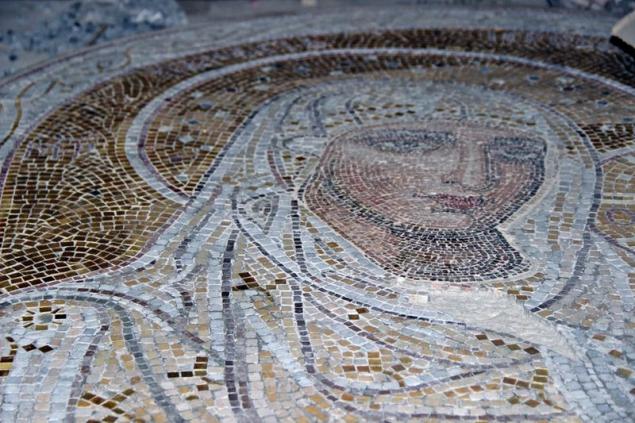
Such are zagotovki- you'll see them in the future. They are glued to the canvas and not break
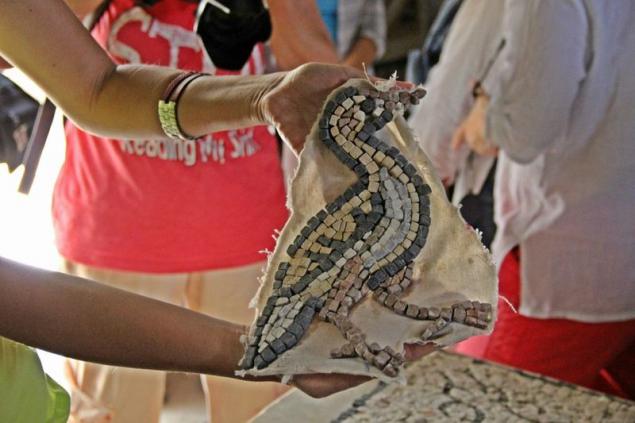
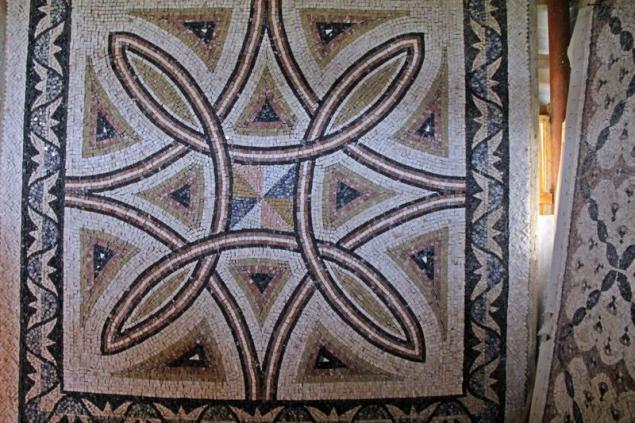
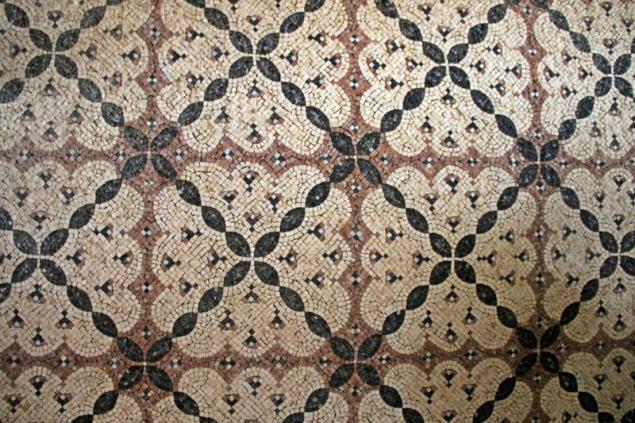
All, of course, they look and shoot
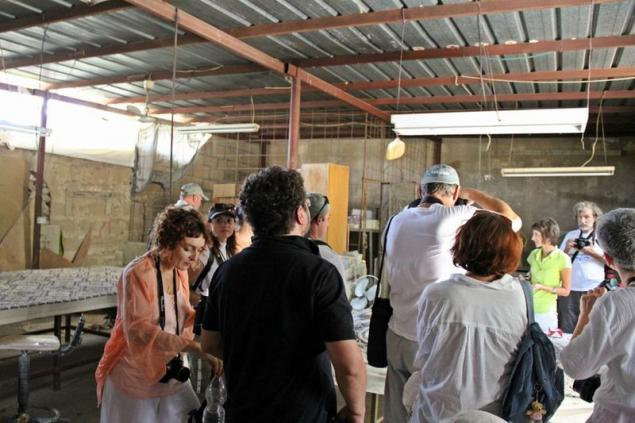
Here is blank
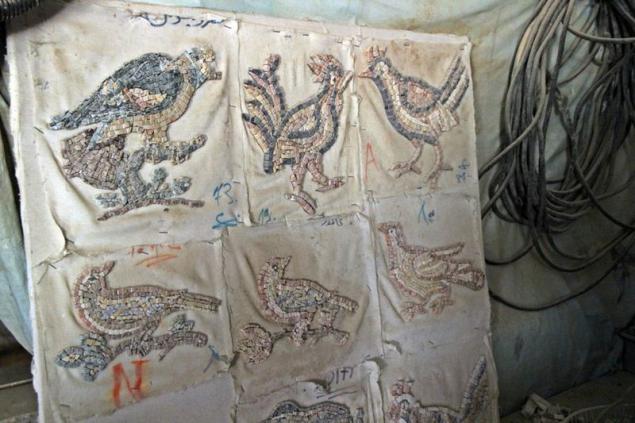
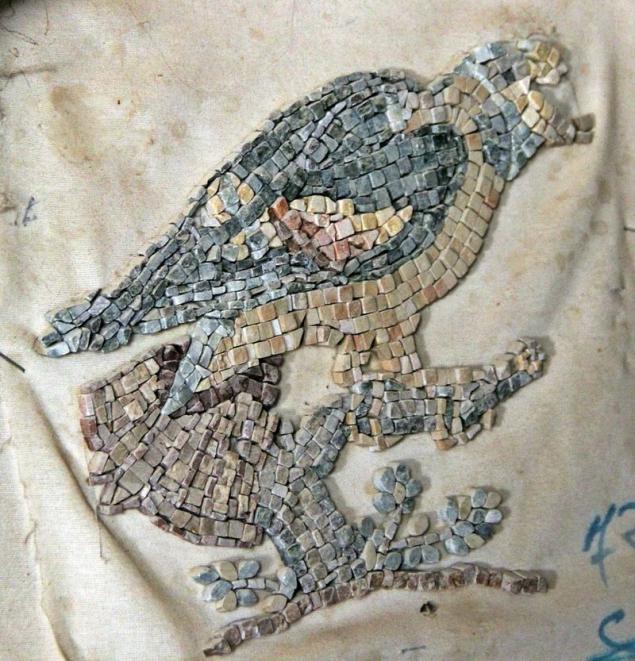
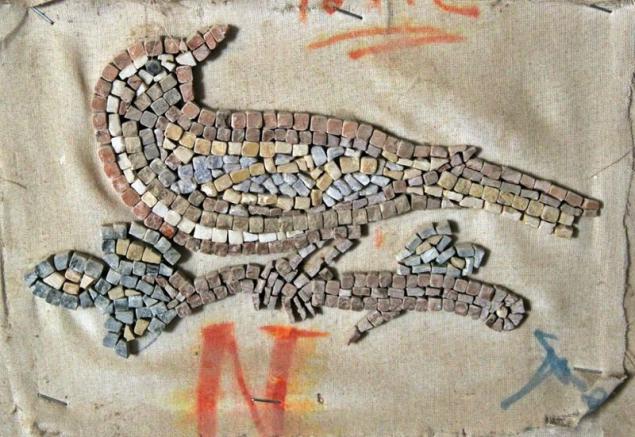
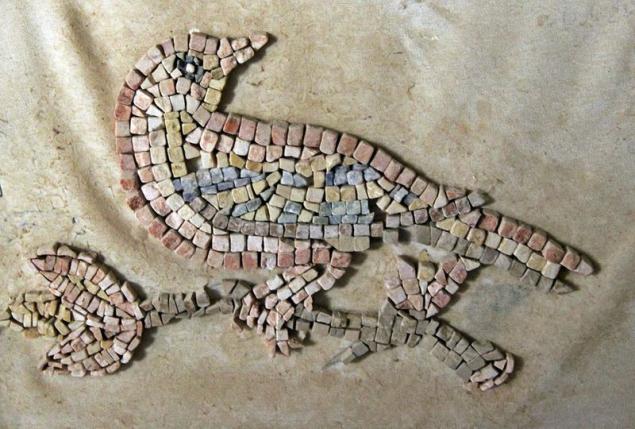
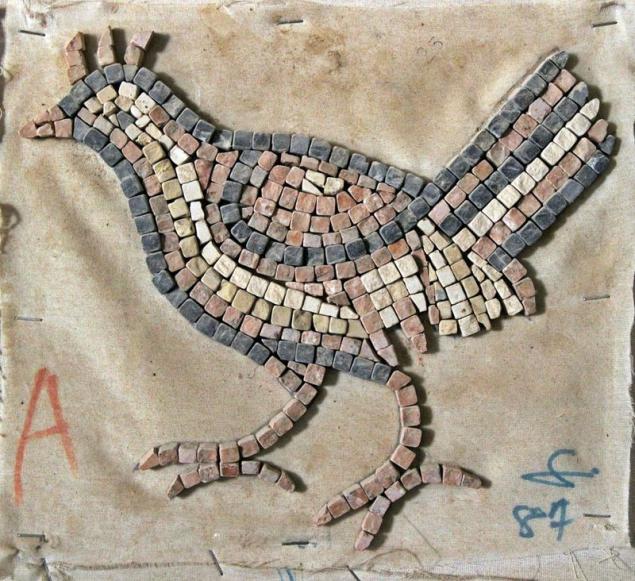
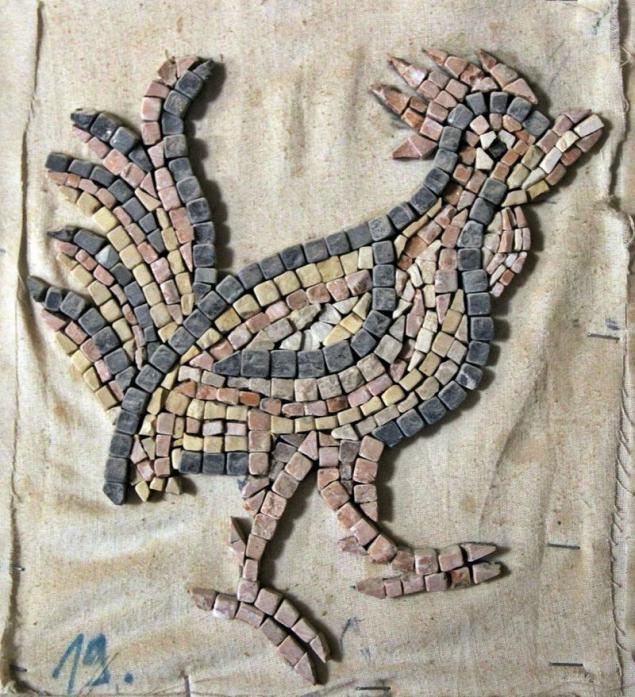
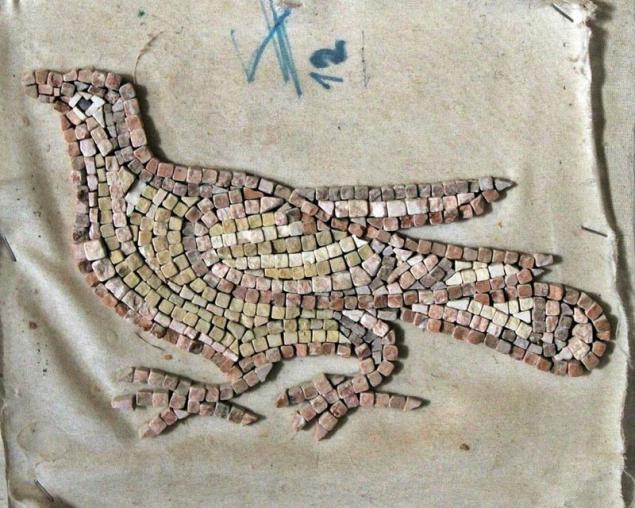
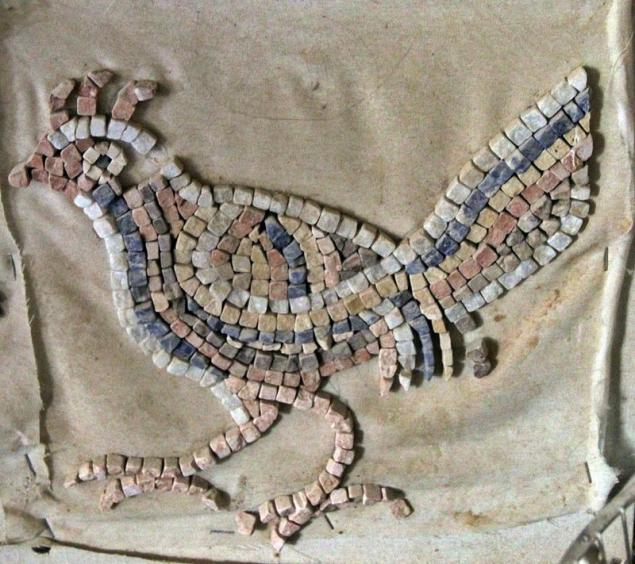
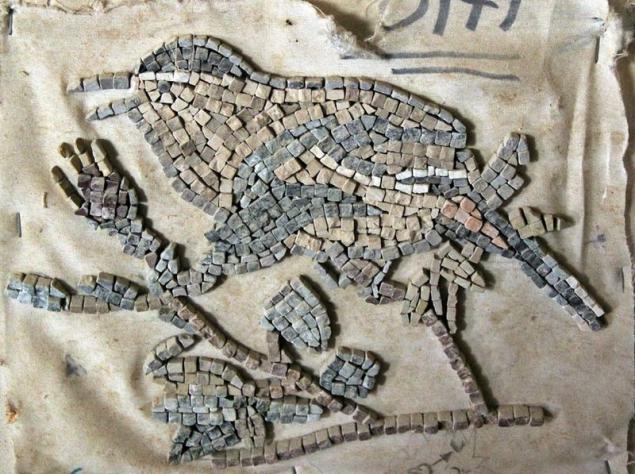
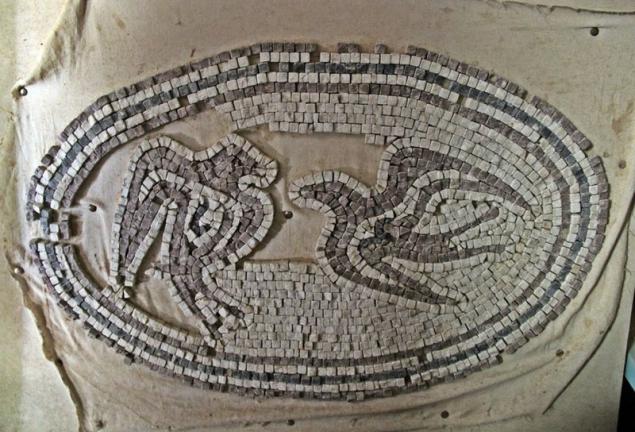
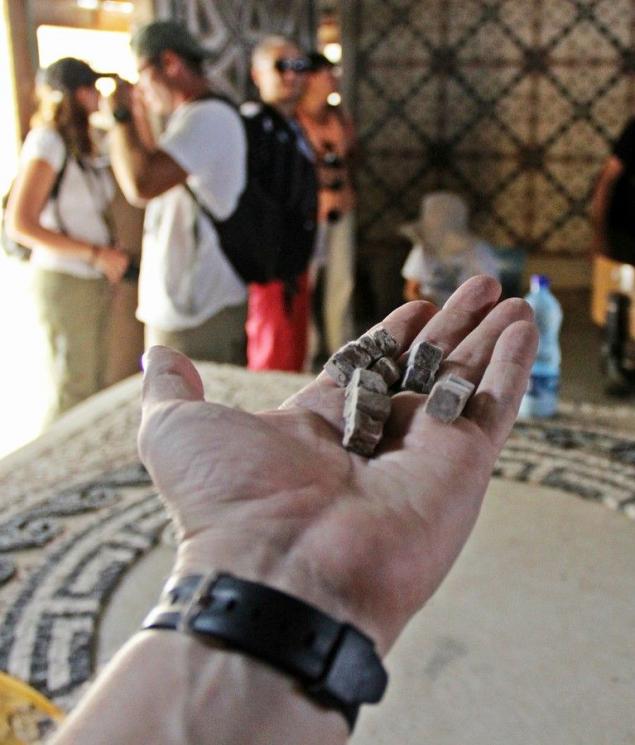
Unfinished Madonna and Child
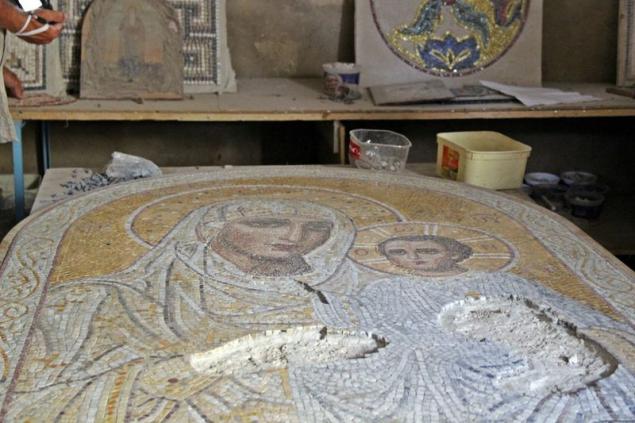
And here is the missing hand, we found it separately
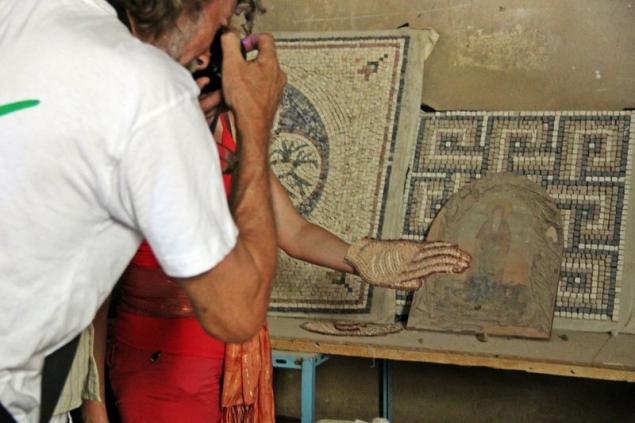
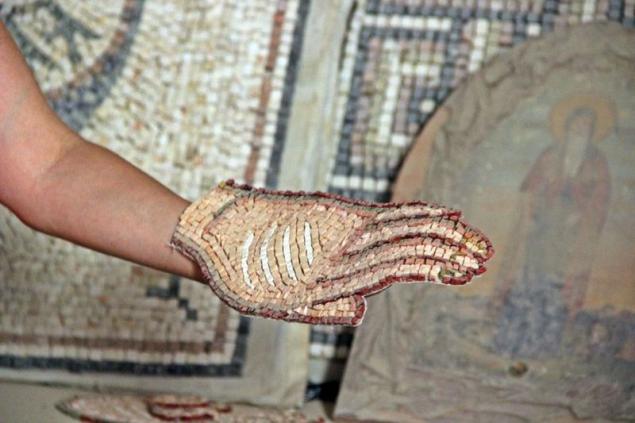
Inspired by the shooting, the guys turned the box of pebbles and began to collect them
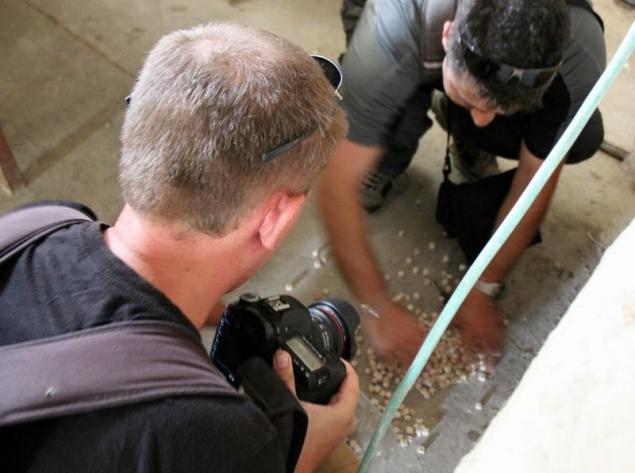
Well begun ... One began, and took another first friend at work, as a true photographer, and then began to help him. Well, I shot both of them. I wonder if someone took me, takes off?
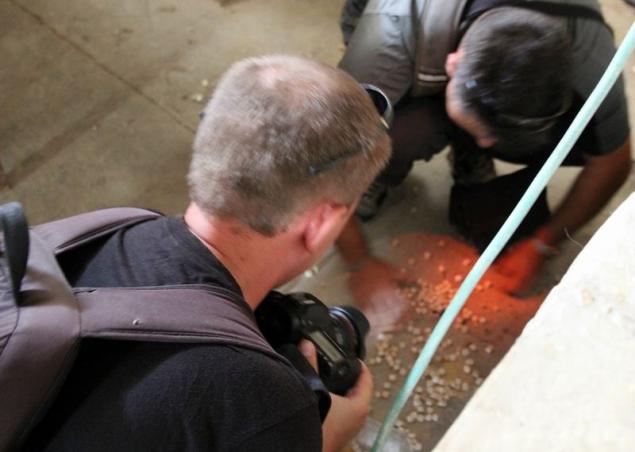
Here saws for cutting stones
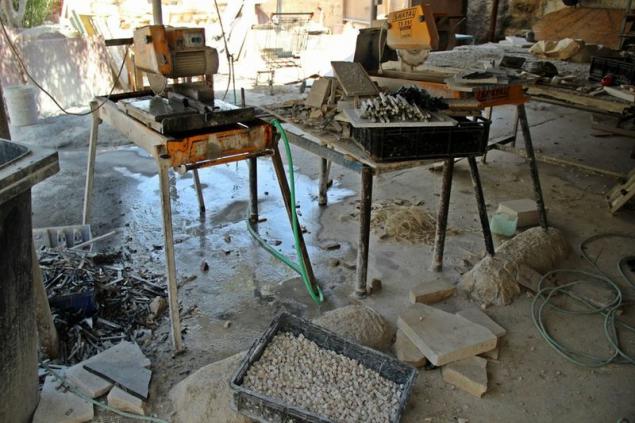
Please strips
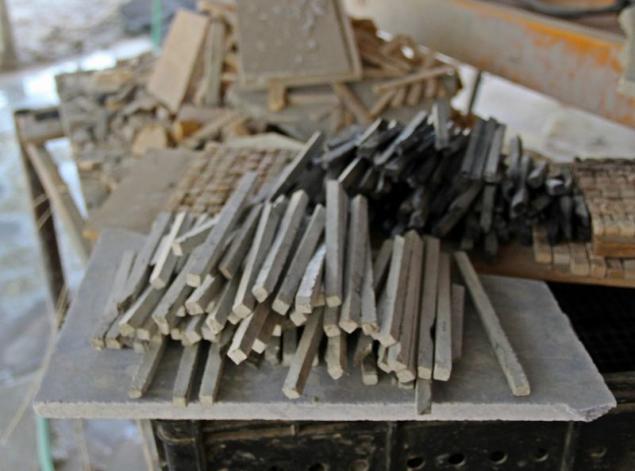
And then into squares
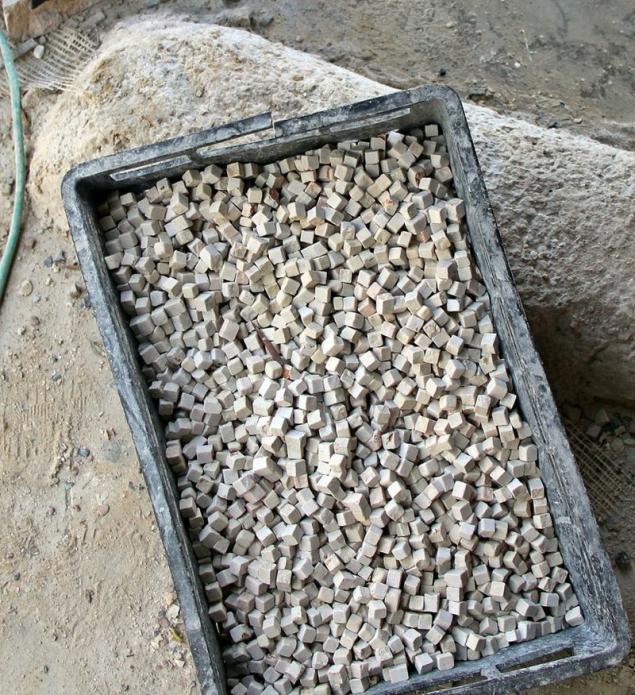
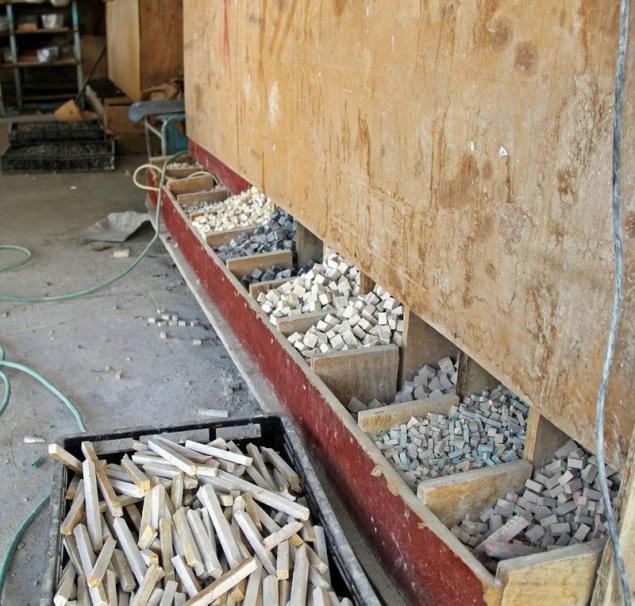
How do you see the Jewish mosaic made without any problems
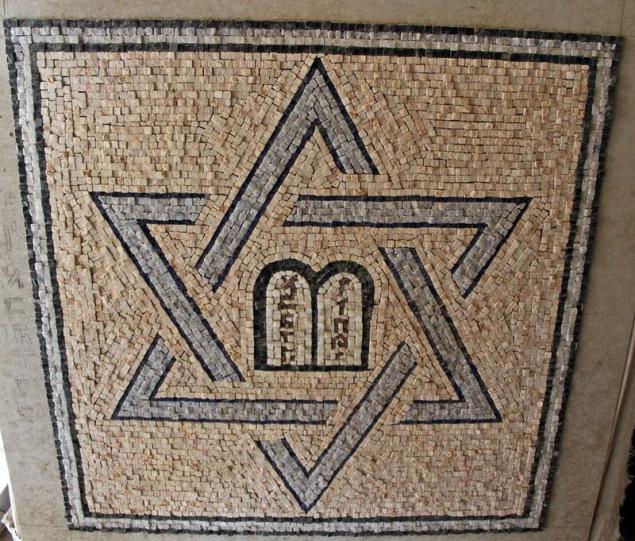
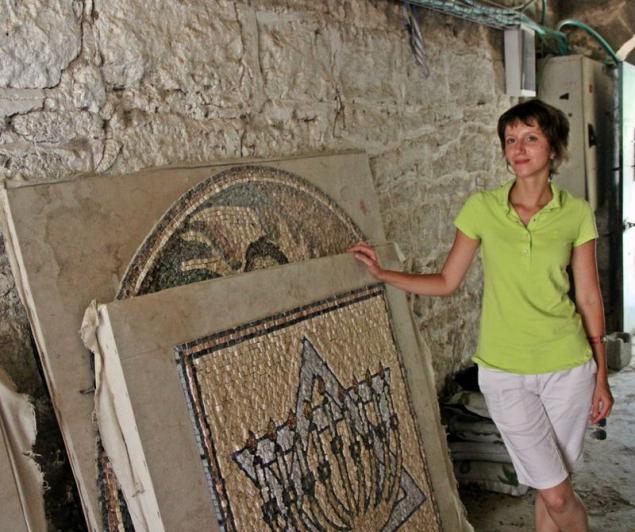
Inna has in the museum told us about mosaics. Initially large mosaic paintings were laid directly on the walls or on the floor. But this method was not very easy to use and require a permanent location in the workplace. Later, the process of assembling mosaics was moved to the premises and improved - from wood or metal made special boxes with low bumpers, which were going to the future of the web. Then, when the mosaic was finished, Dona boxes were removed, along with the dialed pattern together and build into a wall. The seams were sealed neatly matched by color mosaic cubes
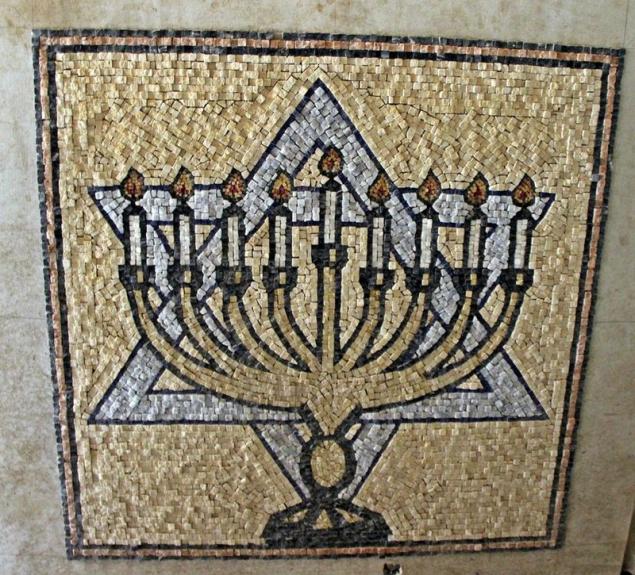
There are two ways to set the mosaic - forward and reverse. If the mosaic is dialed "right way" cubes immediately placed face up. Thus, the artist, firstly, can immediately see the result of their work, and secondly, he must show the utmost diligence and accuracy in order to keep the perfect smoothness of the surface of the web. There is also the reverse method of laying mosaic - a drawing on tracing paper, then mosaic cubes dipped in glue and glued to the paper face. When finished gluing, paper mosaics transferred to a designated place for it, pushing the back of it in the fixing part. After a couple of days, when it dries, tracing paper and the glue washed off the blocks, and then it becomes visible to the front of the mosaic.
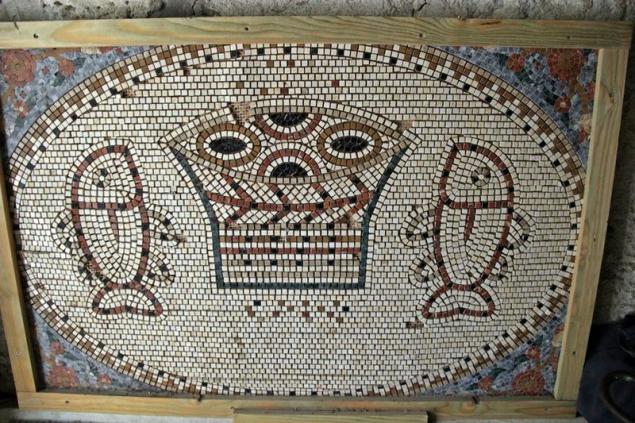
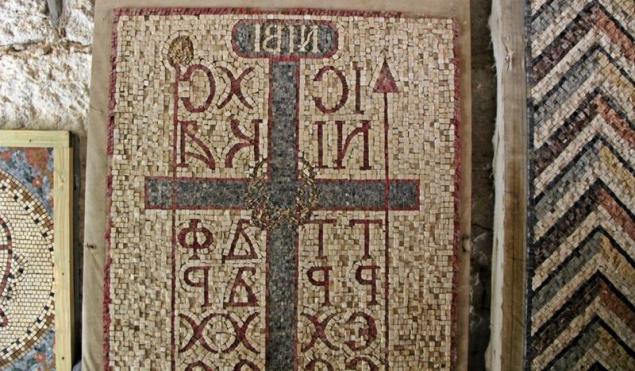
Look - here's an example of reverse mosaic - although all these framed reverse course, but there is noticeable. Even without knowing the Greek, you may notice that the letters are visible mirror, ie, it is the wrong side of that will go to the wall, and it will be seen opposite - smooth and with the correct letters
We saw a production workshop with you, you can say the work of artisans from templates - and here it is in the courtyard of the monastery art workshop - then both Arabs and Israelis and foreigners engaged in a fine art - and not just a mosaic.
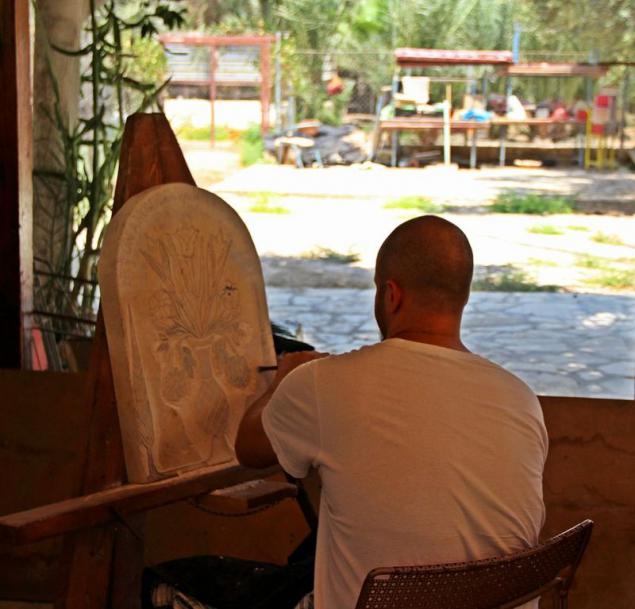
You see how everything is done
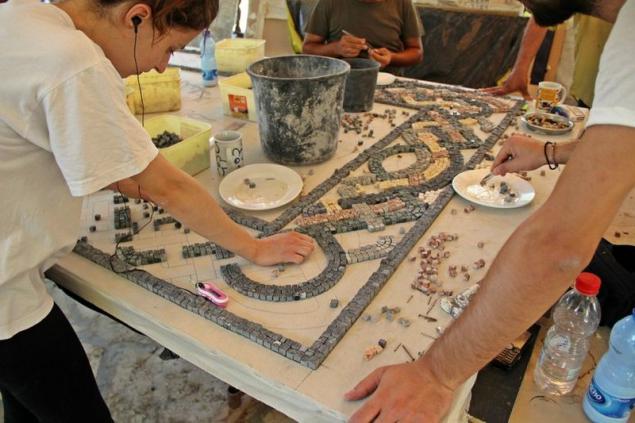
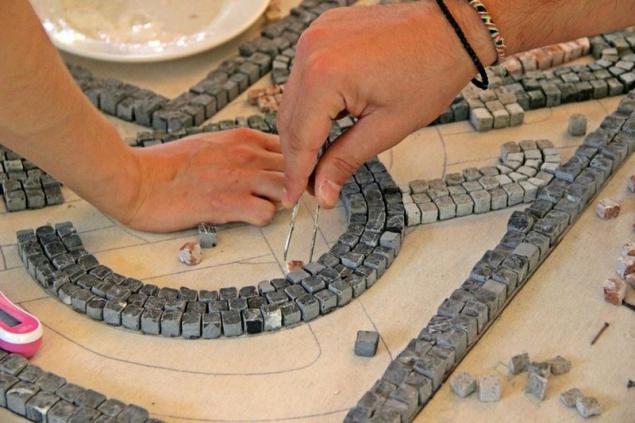
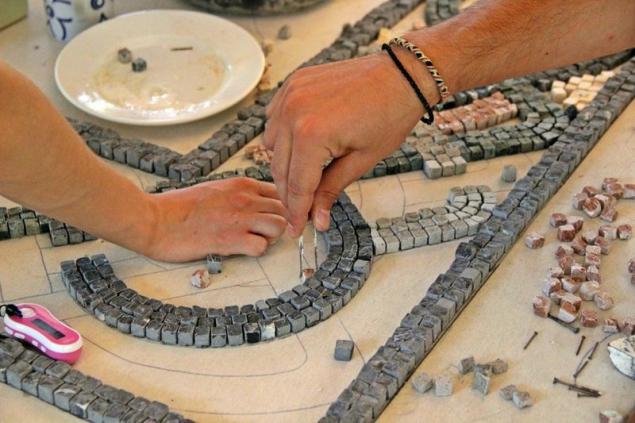
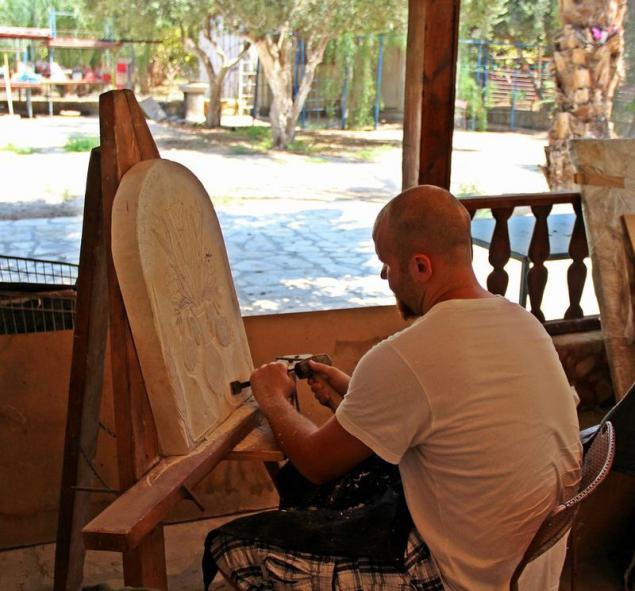
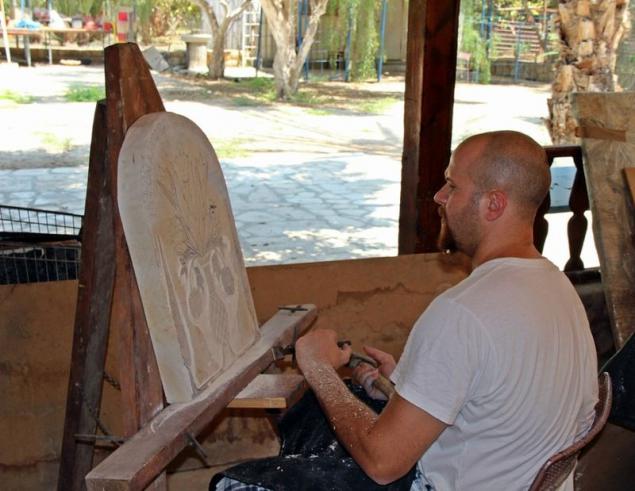
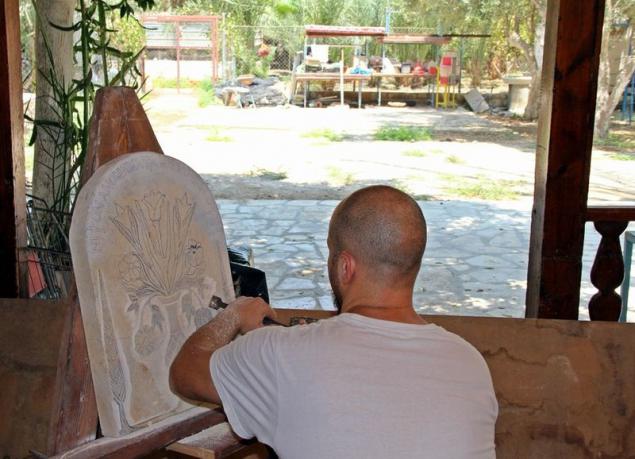
Source: grimnir74.livejournal.com

Outside, the desert landscapes


Sometimes even the moon

And here is the monastery. Inna said that we are lucky enough to catch the dome of the monastery at the time of the restoration of gray gold, but these things assertion was greeted rather skeptical

Dates are almost ripe

The monastery, named after St. Gerasimos of Jordan (arab. Deir Hagley (Deir Hadzhla), "House partridges"), was built in about the 19th century on the ruins of the buildings of the Crusaders, who, apparently, were the place of his monastery, built in the year 455 and is considered one of the oldest on the territory of the Holy Land. This wall - the last thing that remains from the times of the Crusaders.

And here is the workshop. We went into it through the back door

Billets

Previously worked here the monks who came from Greece, and now laid mosaic Arabs from the nearby town of Jericho

They did not object to our presence and shooting, but were watching our actions

The monastery, unlike many others, is almost self-sufficient lives by selling puzzle to anyone who orders any subjects. Well, maybe naked nymphs, and they will not do, and anything for your money



Such are zagotovki- you'll see them in the future. They are glued to the canvas and not break



All, of course, they look and shoot

Here is blank











Unfinished Madonna and Child

And here is the missing hand, we found it separately


Inspired by the shooting, the guys turned the box of pebbles and began to collect them

Well begun ... One began, and took another first friend at work, as a true photographer, and then began to help him. Well, I shot both of them. I wonder if someone took me, takes off?

Here saws for cutting stones

Please strips

And then into squares


How do you see the Jewish mosaic made without any problems


Inna has in the museum told us about mosaics. Initially large mosaic paintings were laid directly on the walls or on the floor. But this method was not very easy to use and require a permanent location in the workplace. Later, the process of assembling mosaics was moved to the premises and improved - from wood or metal made special boxes with low bumpers, which were going to the future of the web. Then, when the mosaic was finished, Dona boxes were removed, along with the dialed pattern together and build into a wall. The seams were sealed neatly matched by color mosaic cubes

There are two ways to set the mosaic - forward and reverse. If the mosaic is dialed "right way" cubes immediately placed face up. Thus, the artist, firstly, can immediately see the result of their work, and secondly, he must show the utmost diligence and accuracy in order to keep the perfect smoothness of the surface of the web. There is also the reverse method of laying mosaic - a drawing on tracing paper, then mosaic cubes dipped in glue and glued to the paper face. When finished gluing, paper mosaics transferred to a designated place for it, pushing the back of it in the fixing part. After a couple of days, when it dries, tracing paper and the glue washed off the blocks, and then it becomes visible to the front of the mosaic.


Look - here's an example of reverse mosaic - although all these framed reverse course, but there is noticeable. Even without knowing the Greek, you may notice that the letters are visible mirror, ie, it is the wrong side of that will go to the wall, and it will be seen opposite - smooth and with the correct letters
We saw a production workshop with you, you can say the work of artisans from templates - and here it is in the courtyard of the monastery art workshop - then both Arabs and Israelis and foreigners engaged in a fine art - and not just a mosaic.

You see how everything is done






Source: grimnir74.livejournal.com
